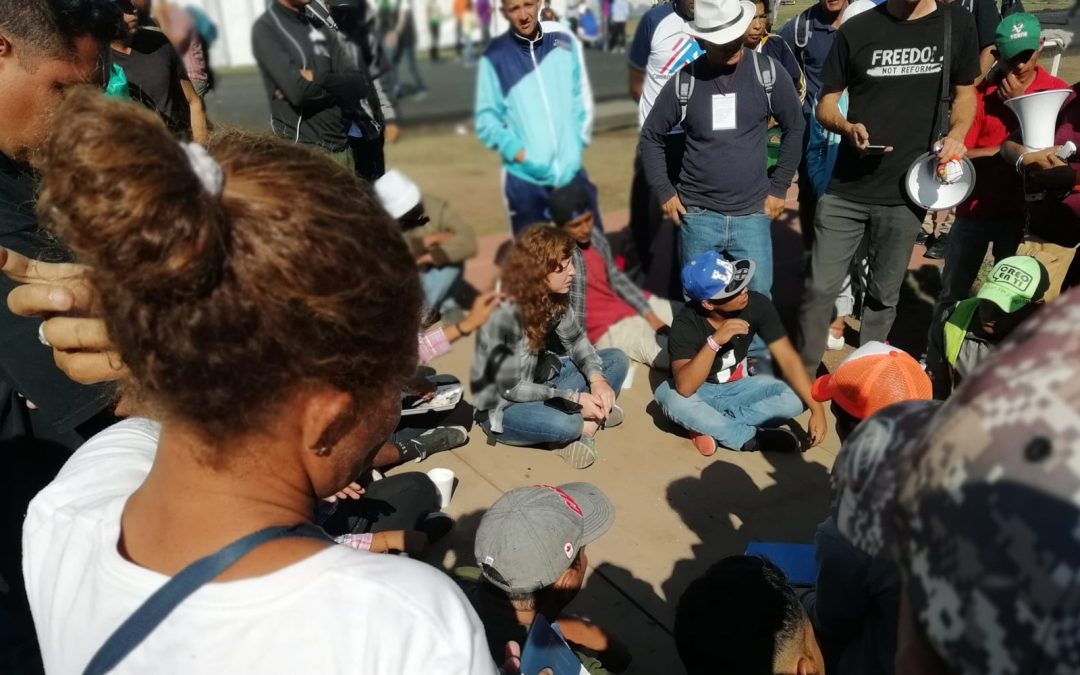Once again, we begin the new liturgical year as we observe Advent, and we are troubled.
Thousands of determined people seeking asylum are lined up at the southern border of the U.S., and they are being met by soldiers, tear gas and threat to life as they are detained in quarters far from adequate.
Rather than meeting desperation with measured welcome, there is threat of shutting down the border altogether. Families fleeing inhuman ravages now find no room in the inn.
The reading from Jeremiah for the first Sunday of Advent promises that cities laid waste will not be a permanent reality. The scattering of people will not last; rather, a shepherd will once again count the people, which means grant them value. God will provide the leadership capable of restoring the hope of the nation.
“Wait, says the Lord, the days are coming when I will bestow on Israel and Judah all the blessings I have promised them. In those days, at that time, I will make a righteous Branch of David spring up; he shall maintain law and justice in the land. In those days, Judah shall be kept safe, and Jerusalem shall live undisturbed; and this shall be her name: The LORD is our Righteousness” (Jeremiah 33:14-16).
This is the great eschatological hope that the Bible narrates. Eschatology is not simply what comes last in the saga of human striving, it is about what lasts, what is of enduring significance.
My Christian faith tells me that we can do more than we are presently doing to alleviate enormous human suffering in the immigration crisis.
The prophetic hope is never about only what God will do. Messianic hope is about a transformed people who follow a new kind of leader.
The Gospel reading urges those who work for righteousness to be watchful, for many traps can close in on them.
One of the main ones in our day is the despair that nothing really can change and that all immigration problems are intractable.
If every congregation would commit to taking one family, the righteous work of hospitality could be done.
Not only would it transform the horizon of the family, it would also reawaken the gathered community to the heart of the gospel.
It would require vigilance and generosity, yet it is possible. We have seen it before, and our time calls us to this work anew. We simply must wake up to our responsibility as Christians.
Luke writes, “Be on the alert, praying at all times for strength to pass safely through all these imminent troubles and to stand secure before the Chosen One” (Luke 21:36).
God will give us strength to live in righteous ways if we but ask.
As churches, we possess more than enough to make space for these families to begin life in our midst. None of us would be here if that welcome had not been extended to us along the way.
Editor’s note: A version of this article first appeared on Marshall’s Central Baptist Theological Seminary’s president’s blog, Trinitarian Soundings. It is used with permission.


